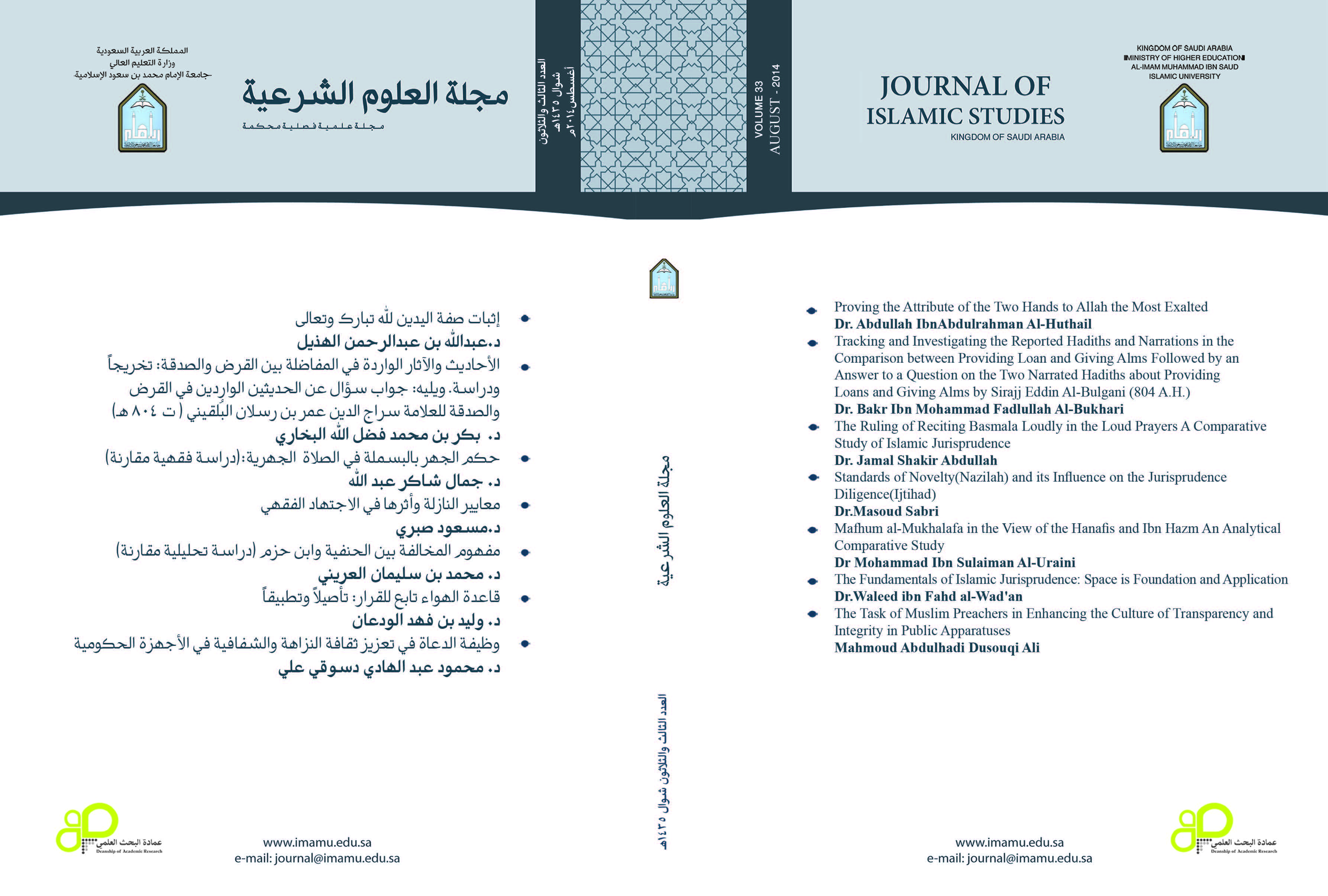Mafhum al-Mukhalafa in the View of the Hanafis and Ibn Hazm An Analytical Comparative Study
Abstract
The Hanafis considered 'mafhum al-mukhalafa' (an interpretation which diverges from the obvious meaning of a given text) as weak evidence, which is inadmissible for use, when inferring legal rulings from religious texts. Ibn Hazm, too, strongly denied the authenticity of this evidence, describing opting for it as a great mistake. This study aims at identifying and analyzing the main principles and bases upon which the approach of Hanafis was based in invalidating the authenticity of this evidence, in addition to identifying the bases upon which the approach of Ibn Hazm relied, in denying it. The study also aims at making a comparison between the two agreed approaches in this respect, investigating the reason behind such agreement of the two views above, with the indication of the frequent difference between them in many situations in the investigation and the application of their supporting textual evidences.




